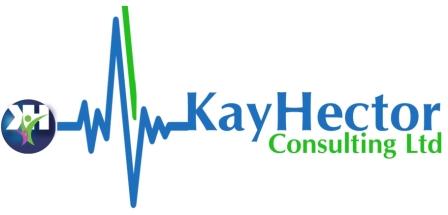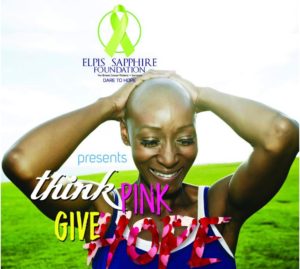Everyone knows someone who has cancer, survived cancer or sadly passed away from the disease. Last time, we shared an enlightenment talk about prostate cancer. Two unrelated events have brought to focus another common condition – Breast Cancer.
According to the World Health Organisation, “Breast cancer is the top cancer in women both in the developed and the developing world. The incidence of breast cancer is increasing in the developing world due to increase life expectancy, increase urbanization and adoption of western lifestyles. Although some risk reduction might be achieved with prevention, these strategies cannot eliminate the majority of breast cancers that develop in low- and middle-income countries where breast cancer is diagnosed in very late stages. Therefore, early detection in order to improve breast cancer outcome and survival remains the cornerstone of breast cancer control.”
It is very rare for a man to have breast cancer and presents as a hard lump underneath his nipple and areola.
As with most health problems, four main factors are relevant to breast cancer – our genes, our lifestyle, the environment we live in and the quality of health services. Survival rate is much lower in developing countries primarily because of late diagnosis. Nearly half of all cancers are preventable, the recurring risk factors being smoking, drinking and overweight.
What causes cancer?
Deoxyribonucleic acid (DNA), a chemical compound is the ‘manual’ with the instructions for life’s processes. Our cells are made of DNA. Our tissues and organs are made of proteins which also control chemical reactions and transmit signals between the cells. When an abnormal protein is produced (DNA mutations), it may modify these natural processes and cause the development of different diseases including cancers.
The Centre for Disease Control has outlined the risk factors for breast cancer, the most important – being a woman and growing older. Other non-modifiable factors are:
• Genetic mutations. Inherited changes (mutations) to certain genes, such as BRCA1 and BRCA2. Women who have inherited these genetic change are at higher risk of breast and ovarian cancer.
• Early menstrual period. Women who start their periods before age 12 are exposed to hormones longer, raising the risk for breast cancer by a small amount.
• Late or no pregnancy. Having the first pregnancy after age 30 and never having a full-term pregnancy can raise breast cancer risk.
• Starting menopause after age 55. Like starting one’s period early, being exposed to estrogen hormones for a longer time later in life also raises the risk of breast cancer.
• Having dense breasts. Dense breasts have more connective tissue than fatty tissue, which can sometimes make it hard to see tumors on a mammogram. Women with dense breasts are more likely to get breast cancer.
• Personal history of breast cancer. Women who have had breast cancer are more likely to get breast cancer a second time.
• Family history of breast cancer. A woman’s risk for breast cancer is higher if she has a mother, sister, or daughter (first-degree relative) or multiple family members on either her mother’s or father’s side of the family who have had breast cancer. Having a first-degree male relative with breast cancer also raises a woman’s risk.
The modifiable risk factors are:
• Not being physically active.
• Being overweight or obese after menopause.
• Using combination hormone therapy.
• Taking certain oral contraceptives (birth control pills).
• Drinking alcohol above sensible limits.
A First Class Breast Service
A fortnight ago, I listened to the Clinical Director of a local Breast Service give an update on their activities:
1. Breast Screening Service: In the United Kingdom, the National Health Service Breast Screening Programme (BSP) offers screening to all women aged between 50 and 70 years (up to 3 years earlier or later in some areas).
2. Symptomatic Service: Since 2010, they had established a two-week rule. Every woman referred with breast symptoms was seen within two weeks. They had a one-stop triple assessment service:
1. Clinical history and examination
2. Imaging – ultrasound and mammogram (if >40)
3. Biopsy of the Breast if indicated
They would say with great confidence at the end of the one visit if the woman had breast cancer. At a follow-up visit, decisions are made about further treatment – breast surgery, chemotherapy (before or after surgery), radiotherapy, anti-hormonal drugs with support for the patient from a multidisciplinary team of doctors, nurses, pharmacists, radiographers, psychologists, dieticians and many more. It was good to hear about oncoplastic approaches for breast conservation and routine sentinel lymph node biopsy (SLNB) before decisions about further surgery. The entire patient journey is funded by public funds, without any direct payment by the patient.
On the flip side, I had the opportunity to address Breast Cancer survivors in another part of the world. Many of these women had mastectomy (breast removal surgery) without any hope for breast reconstruction surgery. The lucky ones still travel to different cities to join long queues for epileptic radiotherapy services. What started as a free mastectomy bra-fitting service for a few beneficiaries has grown into a non-governmental organisation in Port Harcourt, Nigeria – Elpis Saphire Foundation. Their long term hope is that a Radiotherapy facility will be established in their region. They dare to hope and have put together an awareness and fundraising event with a theme “think pink, give hope” If you are reading this and reside in that part of the world, please attend the event. Let’s support this worthwhile initiative
ACTION POINTS:
1. Prevention! Prevention!! Prevention!!!
• Get active and reduce your chances of breast cancer
• Being overweight or obese after menopause puts you at higher risk. Another reason to start now (not tomorrow) to do something about the weight gain.
• Are you on Hormone Replacement Therapy? Review your need
• Cut back or consider stopping alcohol if your current intake in above recommended limits
• Genetic Mutations: If you are at higher risk, go for genetic testing if available and suggested by your doctors
2. Breast Self-Examination vs Breast Awareness
For many decades women had been advised to systematically examine their breasts at specific times of the month. Various review studies have not given scientific backing to this ‘good’ practice. Current advice is for women to be breast aware. The World Breast Cancer campaign pictures above and below are very good. They help women and the men who love them know what changes to look out for in both breasts. .
3. Breast Screening:
If you live in a country with a breast screening programme, please ensure you or the women in your life participate in it once of age.
4. Finally, if you suspect a breast lump or observe any one of the breast changes outlined in the lemons above, please visit your doctor and check it out. Better safe than sorry.
Check out this video:
Breast cancer – Symptoms and treatment
Doctor Hector
KayHector Consulting Ltd
________________________________________
To Consult a GP / Specialist Privately
Online Pharmacy Order








